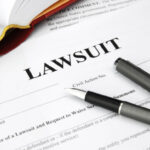A ruling by a panel of the 1st Circuit Court of Appeals means the Aroostook Band of Micmacs is subject to state employment discrimination laws after all.
In a divided ruling, the three-judge panel overturned a federal magistrate judge’s conclusion that the Maine Human Rights Act and Whistleblower Protection Act do not apply to the Aroostook Micmacs because the tribe has a statutory right of self-governance.
The decision, released Tuesday evening, stemmed from the tribe’s 2001 firing of its chief financial officer, compliance officer and housing director.
The three women argued before the Maine Human Rights Commission that their terminations violated the Maine Whistleblower Protection Act. The commission found in their favor, but the small northern Maine tribe contended the agency lacked jurisdiction.
In the original ruling, Magistrate Magaret Kravchuk said a 1991 settlement between the tribe and the federal government “at a minimum, protects the tribe’s power to determine the structure and internal operations of the governing body itself.”
But the three-judge panel saw the case differently. It ruled that the Micmacs were not party to the 1980 Maine Indian Land Claims Act that covered the Penobscot and Passamaquoddy tribes and barred the state from regulating “internal tribal matters.”
Other state and federal actions that came along later didn’t change that, Justices Sandra Lynch and Levin Campbell ruled.
However, Justice Kermit Lipez disagreed. “Our prior case law establishes that the sovereign rights retained by the (Micmacs) foreclose application of the state’s employment discrimination laws to the Micmac,” Lipez said in a dissent.
Douglas Luckerman, lawyer for the Micmacs, said he was “stunned” by the decision. He contended that if there was a conflict among different laws and agreements, then the court was required to choose the one most favorable to the tribe on the issue of sovereign rights.
“I was stunned at the way that the court in many respects shredded federal Indian law,” Luckerman said Wednesday. He said he would be consulting with the tribe about whether to ask the panel to reconsider, or to appeal the decision to the full 1st Circuit Court of Appeals or to the U.S. Supreme Court.
Maine Assistant Attorney General Christopher Taub said he fully expects the tribes to appeal. In the meantime, additional questions that were not addressed by the three-judge panel will go back to Kravchuk for additional consideration.
“At least for now, (the ruling) does answer the question of whether the tribe is subject to the Maine Human Rights Act and Whistleblower Act,” he said.
Was this article valuable?
Here are more articles you may enjoy.

 Harvard Study Again Stirs the Pot on Demotech Ratings of Florida Carriers
Harvard Study Again Stirs the Pot on Demotech Ratings of Florida Carriers  Texas Among Several States Facing New Fire Risks: Weather Watch
Texas Among Several States Facing New Fire Risks: Weather Watch  Supreme Court Allows More Transport Workers to Bypass Arbitration and Sue Employers
Supreme Court Allows More Transport Workers to Bypass Arbitration and Sue Employers  Travelers Survey: Distracted Drivers Making US Roads More Dangerous
Travelers Survey: Distracted Drivers Making US Roads More Dangerous 